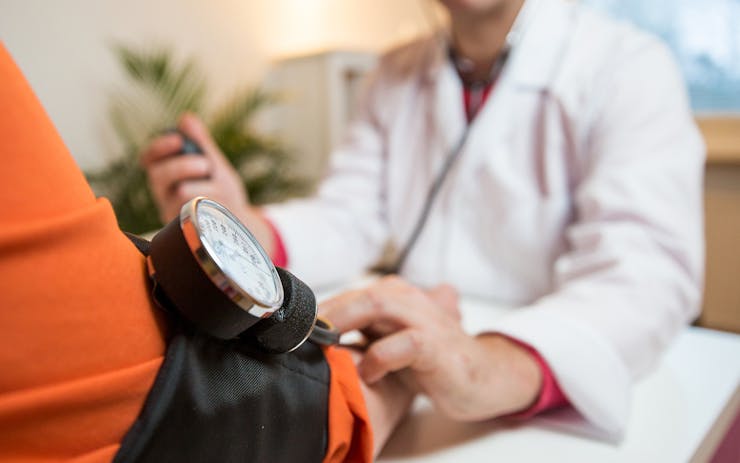Are there a bunch of “fakers” in Canada’s medical marijuana program? And is it necessary to impose a tax on the program so that it dissuades more recreational cannabis users from joining the program? That’s what the Canadian government has suggested as it defends a new tax being imposed on the nation’s medical cannabis system.
Ottowa has announced that a 10% excise tax will be levied on producers of cannabis—regardless of whether the product is destined for medical patients or recreational consumers.
All cannabis sold through the medical program is subject to both federal sales tax and provincial sales tax. That’s not news to medical cannabis patients, as the tax has been in place since the current program’s implementation in 2013.
But now, the federal government has announced that as part of its legalization of non-medicinal cannabis, a 10% excise tax will be levied on producers of cannabis–regardless of whether the product is destined for medical patients or recreational consumers.
“Our government remains committed to maintaining a function medical marijuana system,” Liberal MP Bill Blair told The Globe and Mail in November. “At the same time, we do not want the taxation levels to be an incentive for people to utilize that system inappropriately, and we propose that the taxation levels for both medical and non-medical will be aligned.”
“We do not want the taxation levels to be an incentive for people to utilize that system inappropriately.”
The government seemed to double down on the implication earlier this month, when Prime Minister Justin Trudeau appeared on Toronto’s Breakfast Television: “The fact is there are a lot of people who use the medical marijuana industry as a way of getting recreational marijuana,” said Trudeau.
Reaction to the clip was fierce. Mandy McKnight, whose son Liam uses high-CBD oil from Canada’s legal medical cannabis system, sardonically tweeted, “Let’s tax 99% of legitimate medical patients because there are a small number that are hiding behind ‘medical’ to save $1. Is that how we create policy in Canada?”
McKnight’s comments pose an interesting question—just how many people are abusing the system to get their recreational fix?
Leafly spoke with Brian Kierans, a medical cannabis consultant who has worked in several medical cannabis-oriented doctor clinics across Toronto.
“I don’t think there are as many people abusing the system as they think.”
“I don’t think there are as many people abusing the system as they think,” Kierans told us.
Leafly wanted to know the percentage of patients that Kierans believes are accessing cannabis for purely recreational purpose, and his answer was similar to McKnight’s.
“I have no numbers on this. But in my gut, less than 1%. I’ve sat in a clinic for more than a year now. The people that want recreational cannabis, they see you are a doctor’s clinic, and leave….they excuse themselves comically quickly.”
“Some [clinics] have different packages that are more geared towards someone who just wants to get access quickly. But that usually isn’t an indicator that they are just trying to get recreational access—sometimes it’s someone who is sick who feels helpless and when given an opportunity wants to pursue it.”
Kierans says that one concern with the medical cannabis system is that patients may buy from their licensed producer once, and thereafter use the official, authority-deflecting bottle to hold cannabis purchased on the black market or from illegal dispensaries, a practice he called “bottle stuffing.”
All cannabis prescriptions are scrutinized by the provincial Colleges, with the careful oversight driving physicians to be extra careful with their medical-cannabis authorizations.
Some clinics even track the buying patterns of patients, via information provided by licensed producers. “Upon renewal, the clinic will ask [the patient] about buying patterns if they are concerned by [lack of purchases],” says Kierans, noting that the practice of “bottle-stuffing doesn’t necessarily mean the person is recreational-only consumer.
Most significantly, Kierans tells Leafly that all cannabis prescriptions are scrutinized by the provincial Colleges, with the careful oversight driving physicians to be extra careful with their medical-cannabis authorizations.
“There are standard narcotics evaluations for prescribing cannabis at all clinics—because all clinics are under great scrutiny by the College. They are prescribing what is legally a narcotic and they should all be following the steps to prescribe it.
Kierans says that that includes standard questionnaires that are meant to suss out patients who may be addicted to cannabis, including questions about the propensity to addiction.
For his part, Kierans does not agree with the government imposing a tax on medical cannabis. That’s a sentiment shared by more than 13,000 people who have sent emails to the government, as part of the #DontTaxMedicine initiative launched earlier this year by patient advocacy organization Canadians for Fair Access to Medical Marijuana. With that number representing more than 5% of the 200,000 registered medical cannabis patients in the country, it’s something the government may have to re-address.





